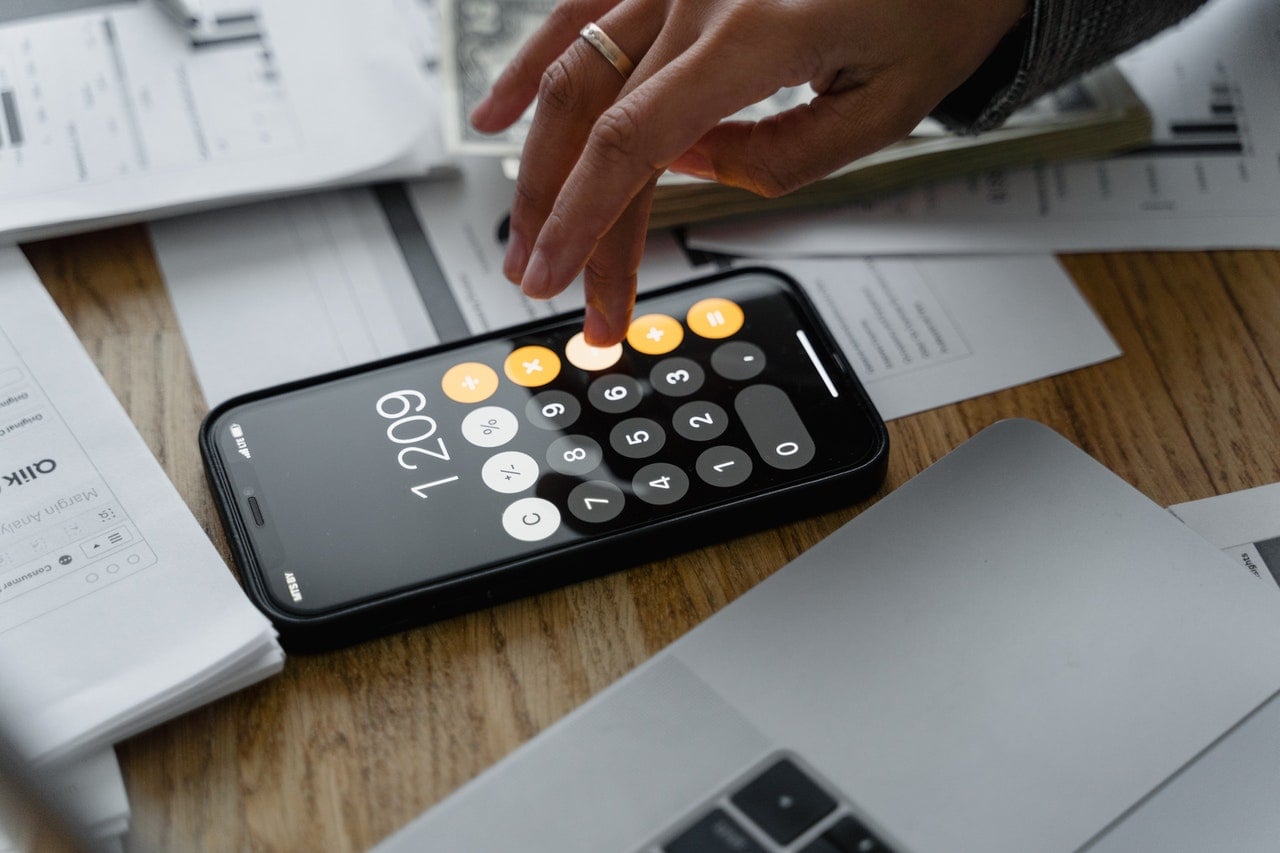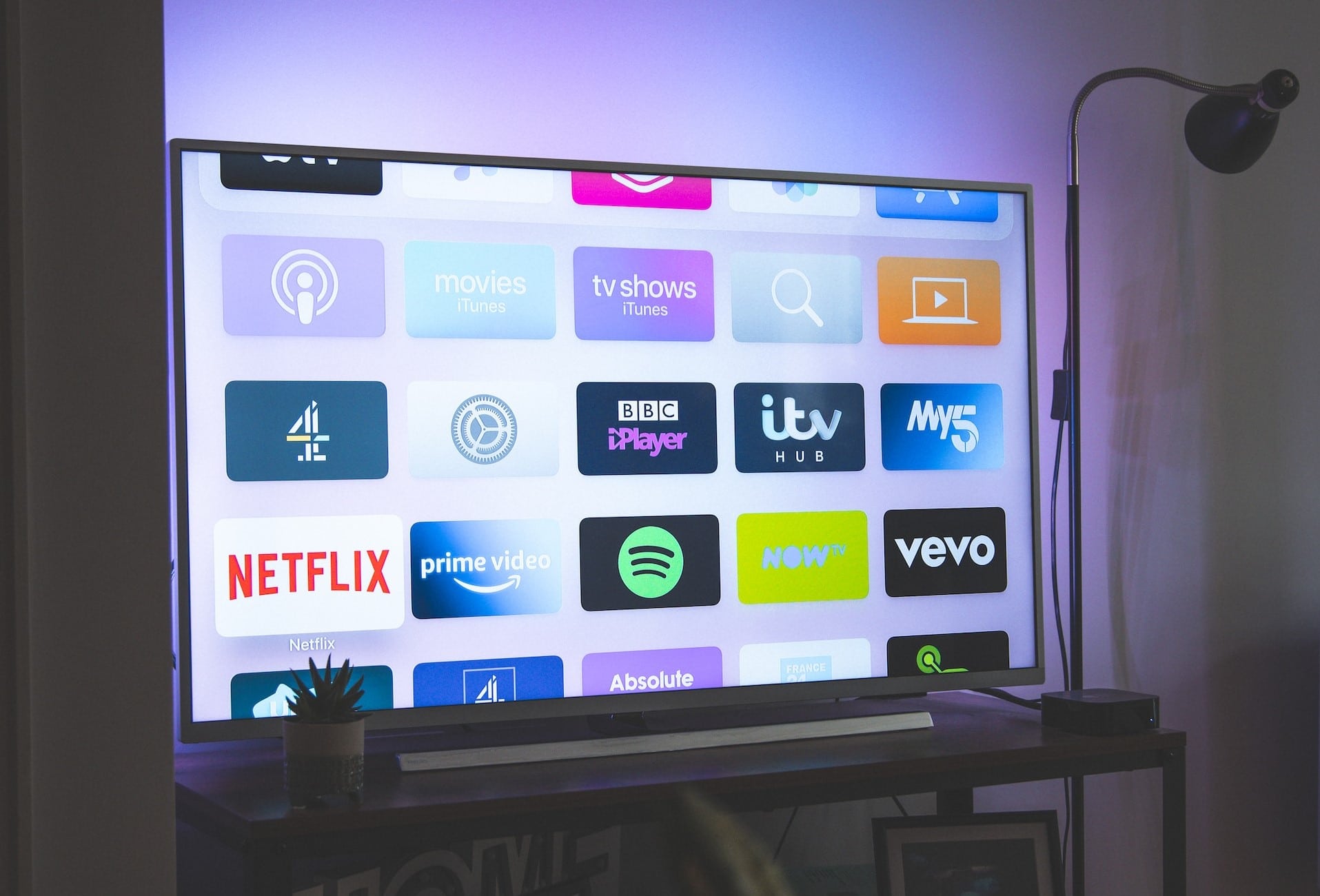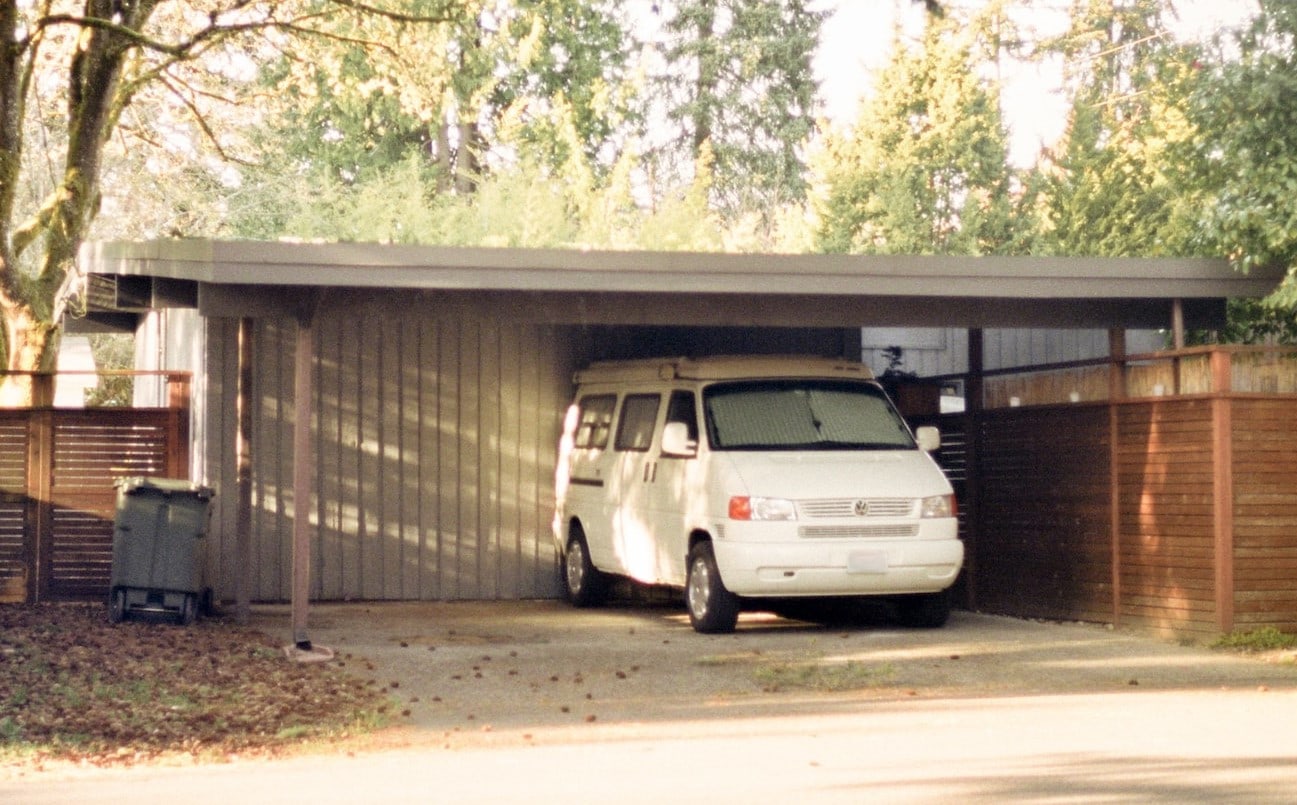Die eigenen Ausgaben im Blick zu behalten ist manchmal gar nicht so leicht. Viel zu oft passiert es, dass das Geld am Ende des Monats einfach weg ist und man sich kaum erinnern kann, wofür man es eigentlich ausgegeben hat. Genau dann schafft ein Haushaltsbuch Abhilfe und bringt Ordnung in das Finanzchaos!
Gute Gründe für ein Haushaltsbuch
Ausgaben mit einem Haushaltsbuch dokumentieren
Mal ehrlich: Wie oft prüfen Sie Ihre Kontoauszüge und rechnen zusammen, wofür Sie Geld ausgegeben haben? Solange das Konto nicht im Minus ist, scheuen wir meist den Aufwand und wollen es vielleicht gar nicht so genau wissen. Denn wenn wir sehen würden, wie viel die Shoppingtouren, das Ausgehen mit Freunden oder das Rauchen auf Dauer kosten, würden wir womöglich unseren Lebensstil hinterfragen.

Neben unvermeidbaren Fixkosten können auch kleinere Kostenfallen beträchtliche Summen ergeben. Spätestens, wenn Sie feststellen, dass nach Abzug aller Kosten kaum etwas übrig bleibt, sollten Sie handeln. Mit einem Haushaltsbuch können Sie lückenlos dokumentieren, wofür Sie Ihr Geld ausgeben. Verschaffen Sie sich einen Überblick über Ihre laufenden Kosten, um die Gewissheit zu haben, dass Ihr Geld nicht einfach spurlos verschwindet.
Unnötig hohe Ausgaben aufdecken
Bleibt am Ende des Monats weniger Geld übrig, als Sie dachten? Möglicherweise liegt das an besonders hohen Ausgaben in einem bestimmten Bereich. In vielen Haushalten lassen sich die höchsten Ausgaben den Bereichen Wohnen, Versicherungen, Mobilität und Telekommunikation zuordnen. Durch eine Übersicht über Ihre Ausgaben können Sie in Ihrem Haushaltsbuch schnell die höchsten Kosten identifizieren und überlegen, ob Sie hier nicht sparen können.
Langfristige Planung dank Haushaltsbuch
Werden Sie regelmäßig von unerwarteten Abbuchungen auf Ihrem Konto überrascht? Ein Haushaltsbuch ermöglicht es Ihnen, die eigenen Einnahmen und Ausgaben genau vorauszusagen und langfristig Ihr Budget (z. B. für Urlaube) zu planen. So wissen Sie immer, wie viel Sie bis Ende des Monats oder Jahres übrig haben, und es besteht keine Gefahr, dass Ihnen vorher schon das Geld ausgeht.
Was Sie im Haushaltsbuch erfassen sollten
Ein Haushaltsbuch enthält in der Regel alle Ausgaben, die eine Person oder Familie pro Monat oder Jahr hat. Diese unterscheiden sich in Fixkosten und variable Kosten.
- Fixkosten sind feststehende Zahlungen, die Sie regelmäßig tätigen müssen oder automatisch von Ihrem Konto abgebucht werden, zum Beispiel Mietzahlungen, Versicherungen, Kosten für Strom, Internet und Telefon, Abonnements und viele andere wiederkehrende Kosten.
- Variable Kosten sind hingegen nicht fest, sondern werden zumeist einzeln getätigt und haben daher immer eine unterschiedliche Höhe. Jeder Einkauf, jedes Essen im Restaurant und jedes Einzelticket zählen dazu. Diese Kosten fallen mal höher, mal niedriger aus.
Wenn Sie möchten, können Sie Ihr Haushaltsbuch um Ihre monatlichen Einnahmen erweitern. Dazu zählen Ihr monatliches Fixgehalt und variables Einkommen aus Nebenjobs, Verkäufen, Gutschriften oder Geschenken. Als Differenz können Sie den finanziellen Überschuss errechnen, der Ihnen nach Abzug aller Kosten bleibt. Diesen können Sie sparen oder für langfristige Investitionen einplanen.
Wie Sie ein Haushaltsbuch erstellen
Es spricht also alles dafür, ein Haushaltsbuch zu erstellen und Ihre Ausgaben zu überprüfen. Wie das genau aussieht, ist Ihnen überlassen: Sie können händisch auf Papier Ihre Ausgaben auflisten oder Ihre Kosten, Rechnungen und Kassenzettel digital erfassen. Eine digitale Lösung ist aufgrund der einfacheren Datenanalyse prinzipiell zu empfehlen. Zum Beispiel können Sie für Ihr Haushaltsbuch Excel oder SeaTable nutzen.
Beispiel: Haushaltsbuch mit SeaTable
Die No-Code-Datenbank SeaTable bietet Ihnen eine hervorragende Möglichkeit, Ihr Haushaltsbuch zu erstellen – mit einer intuitiven Benutzeroberfläche und vielen Funktionen, die über eine klassische Tabellenkalkulation wie Excel hinausgehen. Greifen Sie nicht nur spielend leicht von allen Endgeräten auf Ihre Daten in der Cloud zu, sondern nutzen Sie auch Statistiken, Formeln, Gruppierungen und Filter, um Ihre Daten auszuwerten.
In Ihrem digitalen Haushaltsbuch können Sie alle Ausgaben ganz simpel eintragen. Am Beispiel einer vierköpfigen Familie haben wir eine kostenlose Vorlage gebaut, in der alle wichtigen Punkte enthalten sind:
- Kategorie, Häufigkeit und Art der Ausgabe
- Höhe der Ausgabe und Upload der Rechnung
- Datum, Monat und Kostenträger der Ausgabe
Ob Einkäufe, Miete und Nebenkosten, die Autoversicherung oder die Nachhilfe für den Sohn – mit SeaTable behalten Sie den Überblick über all Ihre Kosten. Mithilfe von Einfachauswahl-Spalten können Sie Ihre Ausgaben individuell kategorisieren, filtern und gruppieren. Für eine chronologische Ordnung in Ihrem Haushaltsbuch sortieren Sie Ihre Ausgaben einfach nach Datum. In zwei weiteren Tabellen können Sie Ihre monatlichen Einnahmen auflisten sowie Ihr überschüssiges Budget errechnen.
Wenn Sie die Vorlage für Ihr Haushaltsbuch verwenden möchten, registrieren Sie sich einfach kostenlos in SeaTable. Danach können Sie die Vorlage in Ihren Arbeitsbereich importieren und flexibel an Ihre Bedürfnisse anpassen.
12 Tipps, mit denen Sie bares Geld sparen
Sobald Sie Ihr Haushaltsbuch aufgestellt haben, sollten Sie die verfügbaren Daten analysieren, Rückschlüsse ziehen und über Einsparpotenziale nachdenken. Wir haben Ihnen 12 unschlagbare Tipps zusammengestellt, wie Sie Ihre Kosten senken können, um mehr Geld für die schönen Dinge im Leben zu haben.
1. Verträge prüfen und Anbieter wechseln
Viele der teuersten Dinge in unserem Leben werden jeden Monat von unserem Konto abgebucht. Strom, Internet, Handyverträge, Versicherungen und vieles mehr. Diese Fixkosten sollten Sie mindestens einmal im Jahr auf den Prüfstand stellen. Dafür empfiehlt sich ein Anbietervergleich über gängige Online-Portale wie Check24 oder Verivox.
Hinterfragen Sie Ihre laufenden Verträge, sehen Sie sich gegebenenfalls nach günstigeren Alternativen um und kündigen Sie teure Altverträge. Viele Anbieter kämpfen um neue Kunden – und oft müssen Sie nicht einmal den Anbieter wechseln: Ein lukratives Angebot von der Konkurrenz kann auch Ihren aktuellen Anbieter dazu bewegen, Ihre Konditionen zu verbessern.
2. Unnötige Abonnements kündigen
Sie haben Streaming-Abos von Amazon Prime, Netflix und Sky? Aber mal Hand aufs Herz – wie oft schaffen Sie es im Alltag wirklich, einen Film oder eine ganze Serie zu schauen? Prüfen Sie, ob Sie bestimmte Streaming-Angebote wirklich nutzen oder eigentlich darauf verzichten können. Das Gleiche gilt für Musik-Streaming-Dienste wie Spotify und Deezer oder auch Zeitungen und Zeitschriften, die Sie abonniert haben. Selbst wenn es nur ein paar Euro pro Monat sind, läppern sich die Beträge im Haushaltsbuch mit der Zeit zusammen.

Unnötige Streaming-Abonnements können ins Geld gehen.
3. Kostenlos Sport treiben
Neben Entertainment-Abos zählen auch Mitgliedschaften in Fitnessstudios, Sportvereinen oder Tanzschulen zu den monatlichen Fixkosten. Aber man kennt es: Einmal angemeldet, verliert man schnell die Motivation und lässt sich nur noch sporadisch blicken. Diese laufenden Kosten können Sie sich sparen, indem Sie zuhause mit einfachen Hilfsmitteln wie Hanteln oder Gummibändern trainieren oder auf Übungen mit Eigengewicht setzen: Sit-ups, Kniebeugen und Liegestütze kosten keinen Cent. Auch das Kardiotraining auf dem Fahrrad oder Laufband können Sie vom Fitnessstudio kostenlos an die frische Luft verlegen.
4. Freunde nach Hause einladen
Spieleabende, Partys oder gemeinsam etwas Leckeres kochen: Aktivitäten zu Hause sind fast immer günstiger als auszugehen. Zusammen mit Freunden können Sie leicht bares Geld sparen, indem Sie Besuche in Restaurants, Bars und Clubs reduzieren und stattdessen Partys in den eigenen vier Wänden organisieren, zu denen jeder Gast ein paar Snacks oder Getränke beisteuert. Zu Hause haben Sie vielleicht sogar mehr Spaß, können die Musik und die Gästeliste selbst bestimmen und Ihr Haushaltsbuch wird es Ihnen danken.
5. Ungenutzten Wohn- oder Stauraum vermieten
Ihre Kinder sind ausgezogen, Sie haben Ihr Auto verkauft oder nutzen Ihren Keller kaum? Wenn Sie mehr Wohn- oder Stauraum haben, als Sie benötigen, ist es sinnvoll, diesen zu vermieten. Ein freigewordenes Zimmer können Sie zum Beispiel über Portale wie AirBnB kurzfristig an Reisende vermieten oder – falls eine WG für Sie in Frage kommt – dauerhaft an Untermieter.
Das Gleiche gilt, wenn eine Garage, ein Parkplatz oder ein Kellerraum, den Sie nicht benötigen, zu Ihrer Wohnung gehört. Die Vermietung von Immobilien kann langfristig jede Menge Einnahmen in Ihre Kasse spülen, die Ihr Haushaltsbuch erfreuen.
6. Öffentliche Verkehrsmittel, Mitfahrgelegenheiten und Car-Sharing nutzen
Gerade in größeren Städten lohnt sich ein eigenes Auto für viele Menschen kaum noch. Nach der Anschaffung kommen ständige Kosten für den Treibstoff, die Instandhaltung, die Versicherung und das Parken auf Sie zu. Deshalb werden Car-Sharing-Angebote immer populärer. Sollten Sie planen, eine längere Strecke zurückzulegen, können Sie über verschiedene Online-Mitfahrzentralen Fahrgäste mitnehmen oder sich selbst chauffieren lassen.

Auf ein eigenes Auto verzichten und den Stellplatz vermieten – so sparen Sie Kosten und generieren zugleich Einnahmen.
Wenn Ihr Wohnort gut an öffentliche Verkehrsmittel angebunden ist, können Sie diese öfter nutzen oder gänzlich auf ein Auto verzichten. Mit Bus und Bahn sparen Sie nicht nur Geld, sondern bleiben dank der Spaziergänge zwischen Ihrer Wohnung und den Haltestellen auch fit.
7. Gebrauchte Ware kaufen
Viele Habseligkeiten für Ihre Wohnung oder Ihren Kleiderschrank müssen Sie nicht unbedingt neu kaufen. Gebrauchtware in einem guten bis neuwertigen Zustand kostet oft weniger als die Hälfte und entlastet Ihr Haushaltsbuch. Stöbern Sie in Second-Hand-Läden, auf Flohmärkten oder Online-Marktplätzen in Ihrer Nähe. Um auf diese Weise Geld zu sparen, müssen Sie aber etwas mehr Geduld mitbringen als für eine Shoppingtour.
Achten Sie zudem auf Sonderangebote von Einzelhändlern. Gerade wenn Sie mit einer teuren Neuanschaffung liebäugeln, kann sich ein Preisvergleich lohnen.
8. Spontankäufe vermeiden
Bevor Sie etwas kaufen, sollten Sie innehalten und reflektieren, ob Sie die Sachen wirklich benötigen. Bei kleineren Käufen im Laden stellen Sie den Gegenstand zurück, nachdem Sie ihn angeschaut haben, und sehen Sie sich noch 5 Minuten im Geschäft um. In den meisten Online-Shops können Sie Ihr Objekt der Begierde zunächst in den Einkaufswagen legen oder auf eine Wunschliste schreiben. Wenn Sie den vorgemerkten Artikel nach einiger Zeit nicht vergessen haben und immer noch haben wollen, dann kaufen Sie ihn.
Nehmen Sie sich vor größeren Anschaffungen einige Tage Zeit, um Ihr Budget im Haushaltsbuch zu kalkulieren und Preise zu vergleichen. So gehen Sie sicher, dass Sie sich die Ausgabe wirklich leisten können und nicht unüberlegt auf ein vermeintliches Schnäppchen hereinfallen.
9. Eigenmarken statt teure Markenprodukte
Die meisten Supermarktketten lassen Eigenmarken produzieren, die deutlich günstiger sind als Markenprodukte, für die kostspielige Werbung gemacht wird. Oft werden die Eigenmarken aber in genau denselben Fabriken und mit denselben Zutaten hergestellt wie die teureren Markenprodukte. Wenn Sie vermehrt auf Eigenmarken setzen, können Sie beim Einkauf bis zu 30 Prozent sparen, ohne Qualität einzubüßen.

Fertiggerichte für jede Mittagspause können kostspielig sein. Hier können Sie nicht nur mit Eigenmarken, sondern auch mit selbstgekochten Mahlzeiten sparen.
10. Essen für die Mittagspause vorkochen
Wenn Sie in jeder Mittagspause teure Fertiggerichte im Supermarkt kaufen, Essen ins Büro bestellen oder beim Imbiss um die Ecke speisen, gehen circa 5 bis 10 Euro pro Werktag flöten. So können schnell 150 Euro im Monat zusammenkommen. Kochen Sie stattdessen lieber größere Mengen an Essen vor und wärmen Sie sich Ihre Leibgerichte in der Mittagspause auf. Dadurch haben Sie im Haushaltsbuch mehr Budget für andere Dinge.
11. Verzichten Sie auf Nahrungsergänzungsmittel
Gewiefte Fitness-Gurus und deren Firmen lassen uns mit verlockendem Marketing glauben, dass wir unsere Ernährung durch spezielle Präparate ergänzen müssten, um beispielsweise Muskeln aufzubauen, den Stoffwechsel anzukurbeln oder das Immunsystem zu stärken. Für Protein-Pulver und Vitamin-Pillen, die meist völlig überflüssig sind, werden Milliarden ausgegeben.
Achten Sie lieber auf eine ausgewogene Ernährung, genug Bewegung und einen gesunden Lebensstil, dann können Sie auf die angeblichen Wundermittel verzichten, die am Ende nur ein Minus in Ihr Haushaltsbuch zaubern.
12. Schluss mit teuren Lastern
Schlechte Angewohnheiten wie der regelmäßige Konsum von Alkohol, Zigaretten oder Kaffee kosten schnell über 100 Euro pro Monat. Dabei gibt es einige Methoden, wie Sie langfristig Ihre Gewohnheiten ändern können. Mit Willensstärke und der Unterstützung von Freunden und Familie schaffen Sie es womöglich, teure Laster loszuwerden, ohne die Sie gesünder leben und auf Dauer sehr viel Geld sparen.
Gleichzeitig können Sie positive Gewohnheiten etablieren: Zum Beispiel ist es gut für die Gesundheit, statt teuren Energydrinks einfach Wasser zu trinken. Ihr Haushaltsbuch wird frohlocken – insbesondere wenn Sie auf Flaschenwasser verzichten und stattdessen auf Leitungswasser zurückgreifen.
Mit SeaTable zu Ihrem perfekten Haushaltsbuch
Sie sehen: Ihre Ausgaben und Lebenshaltungskosten zu überwachen hat nur Vorteile. Mit einem Haushaltsbuch bleiben Sie immer Herr der Lage und wissen genau, wo Ihr Geld geblieben ist. SeaTable passt sich dabei Ihren Bedürfnissen an. Wenn Sie für Ihr Haushaltsbuch bislang Excel nutzen, können Sie Ihre Tabellen einfach in SeaTable importieren. Sie können sich kostenlos registrieren und SeaTable ausprobieren!
Wenn Sie unsere Vorlage nutzen möchten, schauen Sie sich doch mal in unserem Template-Bereich Finanzen um. Es gibt noch viele weitere Anwendungsfälle, wie SeaTable Ihnen den Alltag erleichtern kann.

